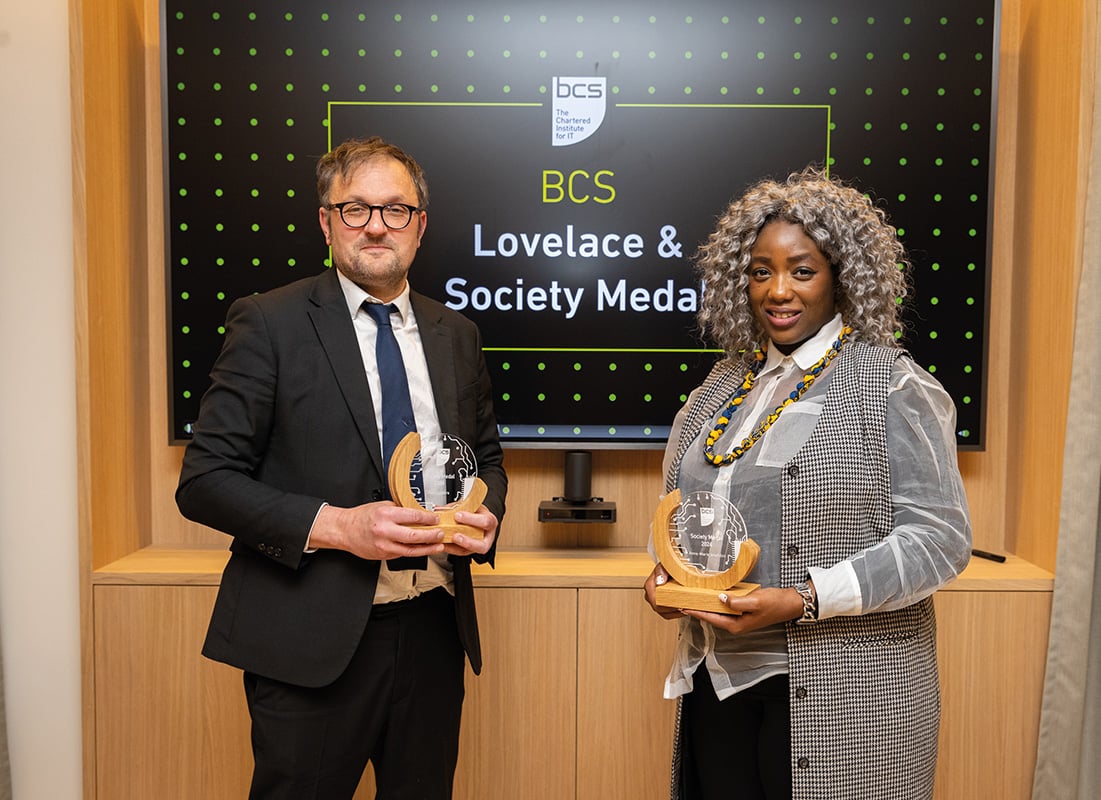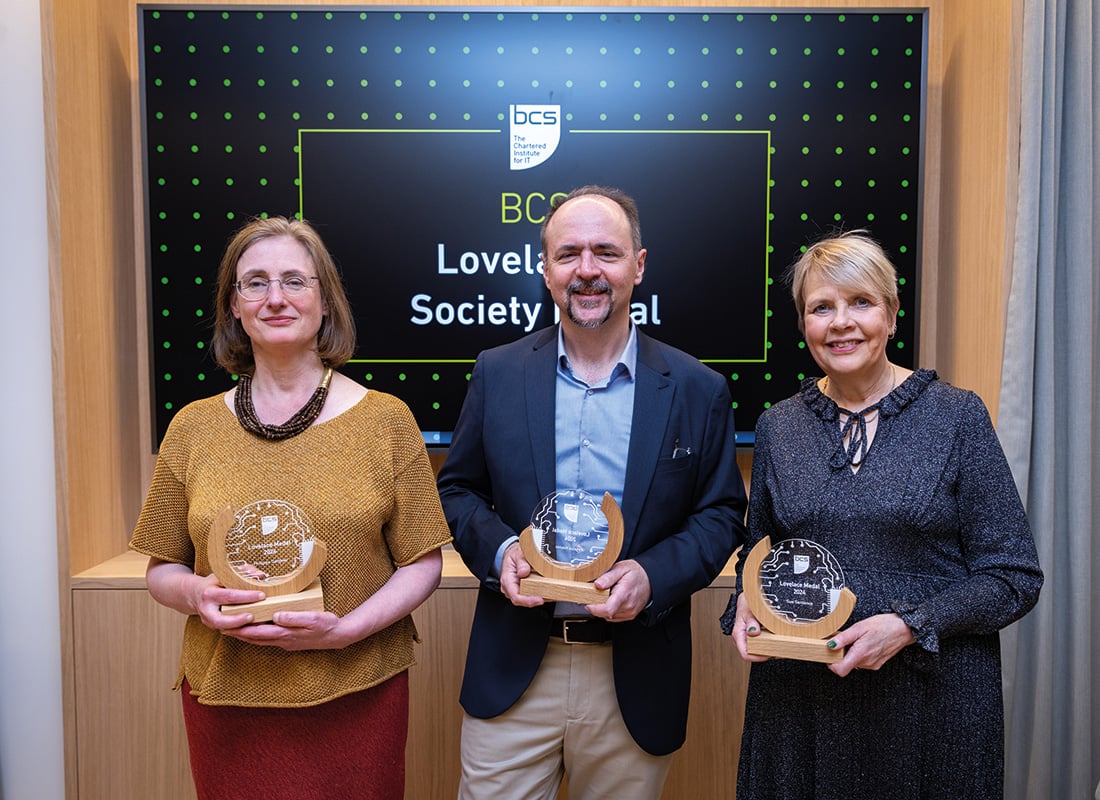The BCS Lovelace and Society Medal ceremony brought together thought leaders, innovators and advocates for an inspiring event, focusing on groundbreaking contributions in fields such as cybersecurity, computing education and diversity in technology.
BCS recently hosted a memorable evening celebrating the outstanding achievements of individuals whose work is making a lasting impact on the world of technology and society.
Held at Fora, London Wall, a welcoming venue filled with vibrant conversation and an enthusiastic audience, the event saw the presentation of the prestigious BCS Lovelace Medal and Society Medal awards. The BCS Lovelace Medal, established in 1998, recognises people who have made exceptional contributions to either the understanding and advancement of computing, or to computing education, in honour of pioneering computer programmer Ada Lovelace. The Society Medal, established in 2020, is one of BCS' highest awards. It celebrates those who make extraordinary use of IT and computing for the benefit of society.

Celebrating the Society Medal winners
The evening’s spotlight shone on the 2024 Society Medal recipients: Anne-Marie Imafidon MBE and Karl Flinders (pictured above). Anne-Marie, founder of Stemettes, was recognised for her tireless work in advancing diversity in STEM and empowering the next generation of women in tech. Throughout the evening, she shared her insights into the challenges women face in the technology sector and her drive to make a positive impact.
In her acceptance speech, Anne-Marie emphasised a societal issue she was particularly passionate about: women’s health. ‘We’re so far behind where we should be in terms of pregnancy, endometriosis and many other issues’, she remarked, highlighting how often these critical topics are neglected in the tech space. ‘These are complicated, yes, but they’re not too complicated for computing to tackle.’
Reflecting on her work at Stemettes, Anne-Marie shared the joy she finds in providing young people with opportunities — mainly through fun, free workshops that offer hands-on experience with agile methodologies, cybersecurity and Python coding. She explained, ‘For me, the highlight moments are always when we run courses during half terms, where we teach young people without prerequisites or pre-testing. It’s amazing to see them grasp the material and feel empowered to take on tech.’
Karl Flinders, the investigative journalist whose groundbreaking work exposed the Post Office scandal, was also recognised with a Society Medal. Flinders has long been an advocate for the societal impact of technology, particularly in terms of its effects on accountability and justice. During his acceptance, Flinders shared a crucial lesson from the scandal: to highlight the importance of understanding the decisions that computers and algorithms make. He warned that, without the proper context, people may accept flawed processes without questioning them. ‘Listen to every story’, he began. ‘If people don’t understand what decisions computers are making, these injustices will continue to happen.’
The Lovelace Medal winners: recognising innovation and impact
The Lovelace Medal honours those whose work in computer science is shaping the future, and this year’s recipients included Dr. Sue Sentance, Professor Aggelos Kiayias and Professor Philippa Gardner (pictured below).

Dr. Sentance, Director of the Raspberry Pi Computing Education Research Centre, was applauded for her pioneering work in computing education research. She shared that receiving the award was a humbling experience, mainly because it brought much-needed attention to the field of computing education. ‘This is not an area that often gets the recognition it deserves, and I’m delighted to see the spotlight on it’, she said. ‘Computing is not just about being technical; it’s about being creative and understanding how it impacts society.’
Professor Philippa Gardner, a leader in the field of theoretical computer science at Imperial College London, was recognised for her groundbreaking work on mechanised language specifications and scalable software verification.
For you
Be part of something bigger, join BCS, The Chartered Institute for IT.
Professor Aggelos Kiayias, a leading expert in cybersecurity and privacy at the University of Edinburgh, was also celebrated for his contributions. In his speech, Kiayias highlighted some of the most pressing societal challenges of our time, including misinformation, AI alignment and cybersecurity breaches. ‘Computing has the potential to save the world from itself’, he said, stressing the importance of addressing the darker side of emerging technologies. ‘But we must ensure that computing systems remain resilient and trustworthy as they become integral to everything we do.’
A thought provoking evening
The evening was not only a celebration of achievements but also an opportunity to engage with thought leaders on the challenges and opportunities facing the tech industry. Hosted by Tom Crick MBE, Chief Scientific Adviser at DCMS, Professor at Swansea University and BCS Academy Board member, the event featured discussions on how computing can address real-world problems, from empowering young people to create their futures in technology to ensuring that the systems we rely on are safe, ethical and transparent.
Lovelace and Society medal nominations for 2025 are now open. Learn more about the Lovelace Medal and Society Medal on the BCS website.
















